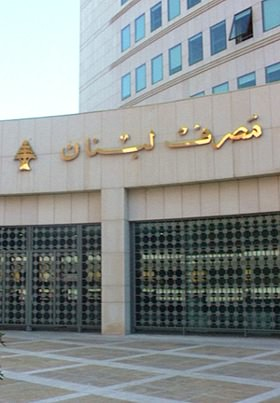 Lebanon’s central bank has revealed the combined profits of the commercial banks operating in the country increased by 6.8% in the first seven months of the year, in spite of ongoing political turmoil which has badly damaged much of the economy, reported the Daily Star. The combined profits had reached $451m by the end of July, while customer deposits increased by 5.8% to $64.2bn over the same period.
Lebanon’s central bank has revealed the combined profits of the commercial banks operating in the country increased by 6.8% in the first seven months of the year, in spite of ongoing political turmoil which has badly damaged much of the economy, reported the Daily Star. The combined profits had reached $451m by the end of July, while customer deposits increased by 5.8% to $64.2bn over the same period.
daily star, BEIRUT: Defying all odds, Lebanese banks maintained their steady profits and growth in the first seven months of this year. According to the Central Bank, the combined profits of all the commercial banks operating in the country reached $451 million in the first seven months of 2007, an increase of 6.78 percent compared to the same period of 2006. The Central Bank also said that capital inflows and remittances have improved in the month of July. It added that the balance of payments in the month of July alone recorded a surplus of $363 million.
At the end of 2006, the combined net income of these banks reached more than $665 million.These impressive results were achieved amid political and security turbulence which have hit most economic sectors in the country. The consolidated balance sheets of commercial banks in the first seven months of this year jumped by 9.79 percent to $79.586 billion while customer deposits increased by 5.8 percent to $64.205 billion in the same reporting period. It is worth noting that the 10 top banks in Lebanon – including BLOM, Audi, Byblos and Bank of Beirut – control more than 70 percent of the market share. In the month of July alone, the deposits rose by $1 billion while assets jumped by $550 million. Central Bank Governor Riad Salameh told the Association of Banks in Lebanon (ABL) at its last meeting that banks are expected to achieve a growth of 6 to 7 percent at the end of 2007 if the situation remains relatively calm.
But ABL president Francois Bassil said in a statement to the Central News Agency that the profits of the banks may dwindle if the presidential election is not held on time. He warned banks may be forced to increase the provisions on nonperforming loans and this will affect profits in general. Economists and bankers are holding their breath as rival politicians try to push their own candidates for the presidency.
One of the biggest challenges Salameh could face in his long career is the prospect of two government and two sets of security forces if the presidential election is not held before November 24 of this year.
This means that Salameh may be forced to increase spending and ensure at the same time that interest rates and the pound are stable.
Echoing the same concern, international rating agency Moody’s said recently that the negative outlook for the rated Lebanese banks reflects the country’s fragile political environment, combined with their high sovereign exposure, limiting the evolution of the banks’ ratings.
"Although it may be argued that the political setting has improved following the withdrawal of Syrian troops from Lebanon, it still remains precarious and not conducive for the time being to pushing through badly needed economic reforms, and with upcoming presidential elections likely to bring further complications," Moody’s said.
It added that around 28 percent of the banking system’s interest income originates form Lebanese Treasury bills. Moody’s estimates that around 45 percent of the banks’ total interest income derives from sovereign-related investments and placements with the central bank. "Such a high level of dependence of core income on a poorly-rated (B3) sovereign is a worrying factor as any disruption in the latter” payment capacity is likely to significantly jeopardize the banks’ revenues," says Nondas Nicolaides, a Moody’s analyst and author of the new report.
Nearly half of the banks’ loans go to the government to finance projects, pay salaries of public staff and above all finance the public debt.
Informed sources, who spoke on condition of anonymity, told The Daily Star that some leading banks have literally stopped buying new Treasury bills.



